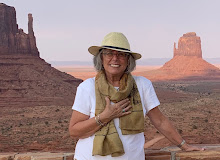It took Rob Garver four years to make his first documentary feature, What She Said: The Art of Pauline Kael, and more than sixty for Agnès Varda to sum up a life in films and, lately, the visual arts in Varda par Agnès, both playing at this year’s Berlinale. They are love letters to the movies, and their power to plunge us into worlds larger than ourselves, to make us think and feel, and to be aware of life and what connects us. It’s an “Everything is awesome” moment when we help the students glimpse what they can do with images and sound and stories. These two documentaries are cool tools to make this happen. It was the same eureka moment I had with The Story of Film. An Odyssey, the 2012 15-hour British miniseries written and directed by Mark Cousins, which I discovered when it premiered at the Berlinale over two days of immersive, ecstatic viewing.
What She Said: The Art of Pauline Kael does exactly what it promises: it throws you into the writings of a larger-than-life opinionated critic, about whom everyone I know has likes and dislikes strongly set. Growing up in Argentina, and looking at film through a French optic – in books, concepts, understanding of history and esthetics – I did not encounter Pauline Kael until I came to the U.S. in 1987 to go to UCLA film school. I liked what I read, but she was not a lightning rod, or a point of special reference, since I wasn’t here from the sixties to the eighties, when controversies exploded and she was at her peak (I found her Wikipedia entry, last edited in January 2019, detailed and objective). Being an auteurist by temperament, I aligned myself differently.
It has a traditional format for a documentary about film – like the Cousins miniseries: talking heads and film clips – tons of them, beautifully edited, for narrative, context, irony, fun and sheer beauty. The interviewees are also a great mix, from fans to friends and the occasional opposing view. Archival footage is interspersed, as in the case of Woody Allen, who famously said: "She has everything that a great critic needs except judgment. And I don't mean that facetiously. She has great passion, terrific wit, wonderful writing style, huge knowledge of film history, but too often what she chooses to extol or fails to see is very surprising”. Allen is voiced here by the filmmaker himself, and Pauline Kael by Sarah Jessica Parker.
 |
| Director Rob Garver |
The most insightful line in the documentary, a Rosebud moment perhaps, is given by her daughter Gina James: “Pauline’s greatest weakness became her great strength, her liberation as a writer and a critic. She truly believed that what she did was for everyone else’s good, and that because she meant well she had no negative effects. This lack of introspection, self-awareness, restraint or hesitation gave Pauline a supreme freedom to speak up, to speak her mind, to find her honest voice. She turned her lack of self-awareness to a triumph”.
Rob Garver had a lively Q&A with the mostly young German audience in the screening I attended. Some were Kael-in-the-making for their strongly felt opinions about how the documentary should have been done – there was a lengthy and polite exchange about the use of music, for example. What She Said- I can see - will inspire vocations when used to describe the job of the film reviewer in the age of blogs and online reviews. And a bonus is that viewing a plethora of clips opens up vistas on film history to our budding filmmakers.
 |
| A still from Varda par Agnès |
Varda par Agnèsis an entirely different ballgame of a documentary, since it springs from a desire to summarize a life-long relationship with filmmaking, shaped by the same experimental and joyful impulse that characterizes Varda’s work since her first film, the experimental feature La Pointe Courte (1955). This piece is set up as a causerie, or chat, Varda has with an audience in a theater first, and then a talk at the Fondation Cartier in Paris. This pedagogical yet intimate environment provides the narrative frame of what unfolds like an oral history. It is an approach that works smoothly, in part because of the running thread set up in the opening sequence: Varda discusses what she sees as the three concepts guiding the life of a filmmaker: inspiration, creation and sharing. These three master lines shape her comments – always insightful –, the choice of film clips, and her desire to summarize and pass on what she has learned.
 |
| Agnès Varda at the press conference |
The documentary is part “explication de textes” – a refreshing exercise – part poetics of cinema and practical lessons for filmmakers, old and new, but also, at 90, a farewell. In her press conference, she was accompanied by her daughter Rosalie, her right hand and producer. She couldn’t see and hear very well, but as she noted, even though she may not make a film again, her imagination is fired every morning with what the day may bring. Curiosity and imagination, Varda responded to a question, are key, regardless of age. One of the loveliest sequences in Varda par Agnès involves children exploring one of her installations, a photo of the tomb of her cat, digitally covered with flowers and with a camera that pulls up and up from the ground, until it’s out of the earth (poorly described here, but phenomenally eloquent in its implications of a connected universe).
 |
| Berlinale red carpet |
Two lines had a special resonance for me, which I will bring up in classes as soon as the documentary becomes available. I quote them from memory: “I have always been interested in real people, in people around me”; and “Cinema does not freeze time … it accompanies time …”



No comments:
Post a Comment